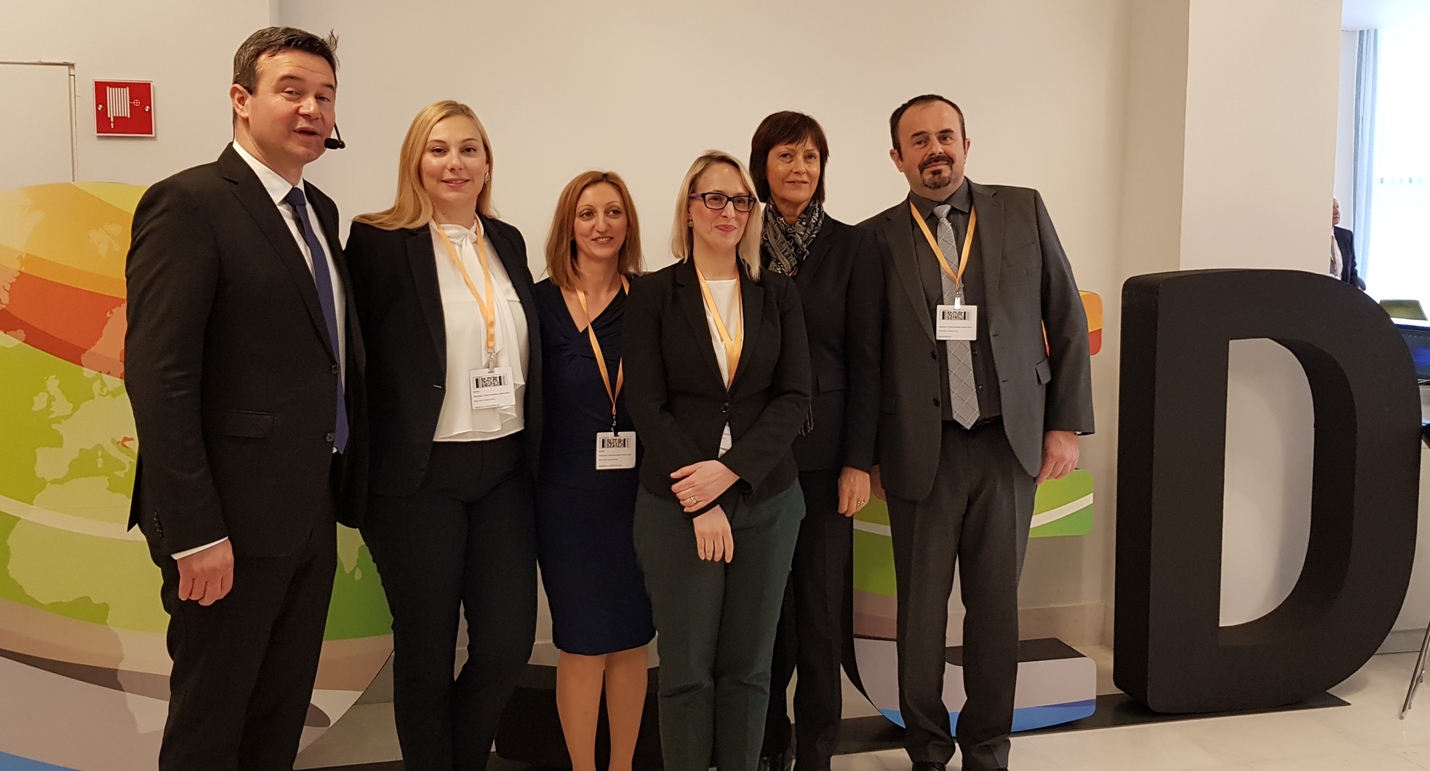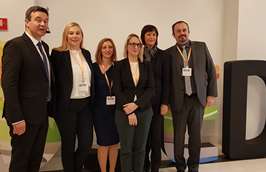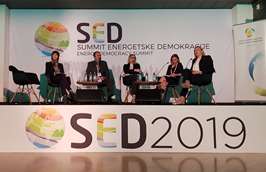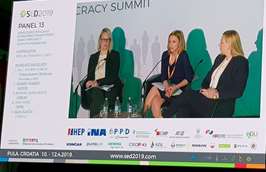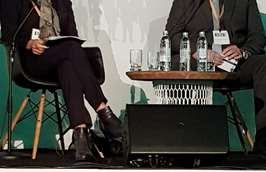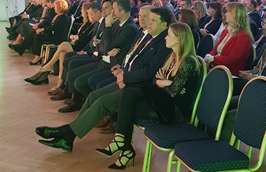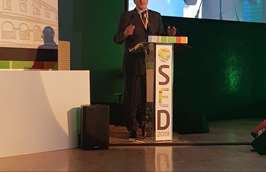12.04.2019.
The participants in the Fund’s panel entitled “Energy Efficiency Incentives Possibilities” discussed the projects that could be implemented using various financial instruments, EU programmes, and national co-financing schemes.
Maja Rajčić, the head of the Independent Service – Intermediate Body, pointed out that from the time of its establishment to date, the Fund had co-financed more than 35 thousand projects, thus encouraging investments worth 15 billion kunas and committing on its part HRK 5.2 billion. “The Fund represents a significant cogwheel in a large clockwork through its role of Intermediate Body level 2, and it participates in the system of management and control of the use of resources from EU funds for 16 specific objectives defined in the Operational Programme Competitiveness and Cohesion 2014 – 2020. Intermediate Body level 2 has implemented more than 1 500 projects in the fields of energy efficiency and renewable energy sources, environmental protection, climate change, and risk management,” said Mrs. Rajčić.
Another source of finance that will soon become available to the Croatian citizens and organisations was also discussed in the panel: the funding that Norway, Island and Liechtenstein will invest through the European Economic Area (EEA) Financial Mechanism. This method of financing was clarified by H.E. Astrid Versto, Ambassador of the Kingdom of Norway to Croatia. “With the aim of reducing social and economic discrepancies within Europe, our countries, along with 15 EU Member States, allocated grant funding totalling 2.8bn euros,” said H.E. Versto, adding that Croatia had been allocated €103.4m. “The Fund has the role of the programme operator for the programme Energy and Climate, through which the total of 20 million euros will be allocated to the projects promoting energy efficiency and use of RES, with 17 million euros provided from the EEA Financial Mechanism, and 3 million by Croatia. We are looking forward to cooperation with the Fund, and we are convinced that the future programmes will be successful,” concluded Ambassador Versto.
Marko Markić, the head of the Sector for EU Funds, talked about the steps that the Ministry of Environment and Energy has taken to promote energy efficiency and increase the share of renewable energy sources in companies. “We launched two calls aimed at stimulating energy efficiency and the use of RES: one for the manufacturing companies, and one for the companies in the services sector. Speaking in terms of finances, both calls resulted in 164 companies being granted almost 480 million kunas, while the overall investment is worth roughly 925 million kunas,” said Mr. Markić, adding that judging by the proposal drafted by the European Commission, energy efficiency and RES projects are considered to be revenue-generating projects, meaning they generate a return on investment through savings. It is expected that these projects will be promoted though financial instruments, not through grants, or if so, to a much lesser extent.
Since last year, the Croatian Bank for Reconstruction and Development has been active in the process of management of the, so-called, energy efficiency financial instruments. “ESIF Loans for Energy Efficiency is a financial instrument for which the funds are provided from the European Structural and Investment Funds through the Operational Programme Competitiveness and Cohesion 2014 – 2020, Specific objective 4c1 – Reduction of energy consumption of the public sector buildings. The aim of this financial instrument is to finance investments in energy efficiency and stimulate the use of renewable energy sources in the public sector buildings, for the purpose of achieving energy savings. This will support the measures that will bring about at least a 50% reduction in the annual consumption of energy required for heating/cooling,” explained Marina Marasović, the manager of the EU Funds and Financial Instruments department at HBOR.
Banks can have the leading role in EU’s ambitious climate and energy targets, if loans through credit financing are recognised as the solution, and if this results in better energy efficiency. Support for energy efficiency projects and use of renewable sources was explained by Ana Dašić, an expert in the field of withdrawing EU funds from Hrvatska poštanska banka (HPB). “HPB is participating in the implementation of the foregoing investments primarily through financial monitoring of investments in the public and the private sector. Precisely in order to provide the capacities for these purposes, special sources of financing have been agreed so that the investors, as well as suppliers and contractors, could have access to as simple as possible and affordable financing that will also enable uninterrupted works, all with the aim of having the final result of the investment completed as soon as possible,” said Mrs. Dašić pointing out that the bank was able to support with own finances the investments which, for example, do not comply with the criteria for aid, and in this way they give potential projects the opportunity to be implemented based on the structured equity investment and on competitive terms and conditions.
The Energy Democracy Summit/SED 2019, which ended on Friday in Pula, is the most comprehensive energy-related event in Croatia and it brought together a wide range of stakeholders from all segments in the field of energy. “We should not be concentrated solely on our respective subdivision. The State’s task is to manage this process, while the tax policy has to be harmonised with the pricing policy. The end users, meaning energy buyers, should not be the ones to bear the brunt in any way,” said the chairman of the SED 2019, Goran Granić, who is also the director of the Energy Institute Hrvoje Požar.
With more than 300 participants in the conference, the answers to the questions during the 3-day event were offered and received in the total of 21 panels by roughly 150 leading people from this sector from 13 countries across the world.
The event was organised under the auspices of the Ministry of Environment and Energy, Energy Institute Hrvoje Požar, the Croatian Energy Association, and the Croatian Chamber of Economy. Partenrs on the project include the Environmental Protection and Energy Efficiency Fund, HEP, INA, PPD/ENNA and other leading energy sector stakeholders in Croatia: Croatian Energy Market Operator, Končar, Plinacro, Siemens, Croatian Power Exchange (Cropex), Croatian Hydrocarbon Agency, Renault/Nissan, Vermillion, Pliva and the Tourism Office Pula. The technical organiser of the SED2019 conference is the agency ATI from Pula.
